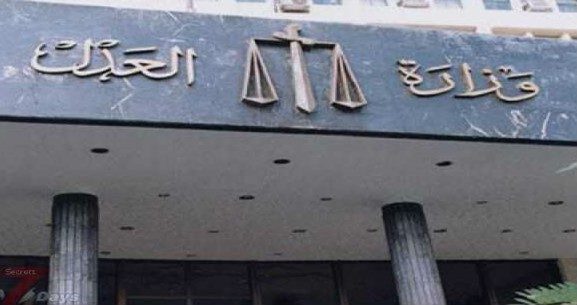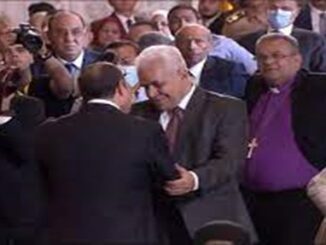
As soon as Sisi on 25 October announced lifting the state of emergency across the country, eight human rights organizations stated that the move had only little impact in practice
Eight human rights organizations have asserted that General Abdel Fattah al-Sisi’s decision had a “negligible” impact in practice, as the rule of law has been inoperative in Egypt since the July 2013 military coup.
The eight rights organizations are: Cairo Institute for Human Rights Studies, Arabic Network for Human Rights Information, Association for Freedom of Thought and Expression, Committee for Justice, Egyptian Front for Human Rights, Egyptian Commission for Rights and Freedoms, Freedom Initiative, and Nadeem Center.
“In effect, the country has been straining under a permanent state of emergency even before the formal declaration of emergency law. In recent years, there has been an onslaught of repressive laws enacted that have codified the exceptional state of emergency into ordinary law,” the eight rights organizations said in the statement they issued on 26 October 2021.
The eight organizations considered the state of exception to be intrinsic to the Egyptian government’s ongoing circumvention of the law and constitution, and the commission of unprecedented rights crimes. “As such, truly ending this state of exception requires the political leadership to stop suppressing all forms of peaceful expression guaranteed in Egypt’s constitution, which is trampled upon daily by the government through an array of means, first and foremost through the enactment of laws and constitutional amendments inimical to it,” the statement added.
The statement also urged Egypt’s governing authorities to “end their repression of all forms of peaceful political and rights opposition”.
Although the formal lifting of the state of emergency means that cases will no longer be referred to the Emergency State Security Court, the court continues to hear cases brought before it prior to Sisi’s announcement, including recently referred cases.
Moreover, other trials in that court, some lasting years, have ended in heavy prison sentences that are still not subject to appeal.
Multiple laws have been issued that have entrenched a permanent state of emergency in practice, regardless of whether a formal emergency is declared or not:
Most significant among these laws are:
– The Counterterrorism Law (Law 94/2015) gives legal cover for the security apparatus to forcibly disappear, torture, and extra-judicially kill civilians in the context of combating terrorism. In addition, both military and civilian courts give sanction to a policy of impunity for killing civilians in Sinai.
– Law 8/2015 regulating the lists of designated terrorists and terrorist entities has facilitated the inclusion of activists and independent entities on designated terrorist lists based solely on unconfirmed police investigations.
– Sisi also issued Law 136/2014 on the security of public and vital facilities, which legalizes the prosecution of civilians in military tribunals.
– Law 13/2017 gives the president the power to select and appoint the heads of judicial authorities, including the Cassation Court and State Council, which constitutes an assault on the justice system and a violation of the constitution.
– The constitutional amendments of 2019 further gave the president the authority to appoint the head of the Supreme Judicial Council.
“These repressive laws will continue to be enforced even after the state of emergency has formally ended, entrenching an undeclared state of emergency and flouting all rights guarantees set forth in the Egyptian constitution,” the statement said, adding, “Trials in the terrorism circuits and military courts, and even in the ordinary criminal courts, continue to disregard all due process rights and guarantees for a fair trial, the same as state security emergency courts.”
Indeed, these courts have handed down an unprecedented number of mass death sentences—far more than state security courts have issued throughout their entire existence—most of which are upheld by the Court of Cassation.
The same courts have sentenced defendants en masse to life imprisonment and prolonged prison terms, and have refused to open inquiries when detainees have been tortured and forcibly disappeared before appearing in court. They have similarly denied defense motions to have defendants examined by a forensic doctor to document evidence of torture and ill treatment.
“The deplorable human rights situation in Egypt requires more than simply a formal end to the state of emergency, which has been rendered obsolete to Sisi’s authoritarian governance by the arsenal of exceptional and repressive laws and the collusion of all state institutions in furthering a policy of impunity and lack of oversight,” the statement of the eight human rights organizations concluded.
HRW: Not sufficient
However, Human Rights Organization (HRW) said Sisi’s lifting of the nationwide state of emergency is positive, but far from sufficient to begin to quell the country’s prolonged human rights crisis.
“The government needs to end many other emergency-law-like restrictions on civic participation, freedom of speech, and peaceful assembly. The president should also free the many thousands of people jailed under those unjust laws.
“Since the July 2013 military coup, the government has issued dozens of laws that need to be amended or removed,” said Amr Magdi, senior Middle East and North Africa researcher at Human Rights Watch. “Otherwise, lifting the state of emergency will improve very little, if anything.”
Al-Sisi declared the nationwide state of emergency in April 2017 following a major terrorist attack that killed dozens of Christians.
Since then, he has renewed it every three months despite article 154 of the constitution, which limits a state of emergency to three months, renewable once. The current and previous parliaments, overwhelmingly pro-Sisi, have acted as a rubber stamp for those decisions.
The 1958 Emergency Law grants security forces wide, unchecked powers, including to detain suspects and dissidents, monitor private communications, ban gatherings and evacuate areas, and seize property, among others, all with little or no judicial review. Egypt has lived under a state of emergency since 1981, with the exception of interrupted periods between mid-2012 and mid-2017.
Since al-Sisi as defense minister orchestrated former President Mohamed Morsy’s removal in 2013, the government has introduced dozens of laws (as mentioned above) that grant security forces exceptional powers and unlawfully restrict basic rights, even without invoking the Emergency Law.
Most repressive of them all was the 2013 anti-protest law, that effectively banned almost all forms of peaceful gatherings and has led to the arrest and prosecution of tens of thousands of people.



